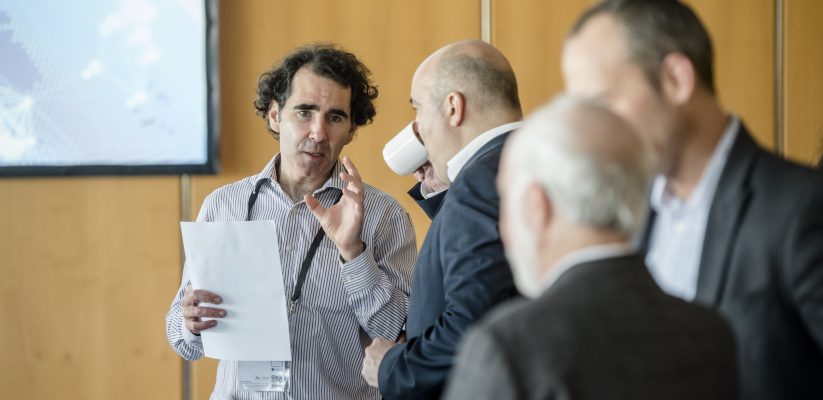Our Transport Planning MSc has been running successfully for over 50 years and is a well-established, professionally accredited course. It has consistently met the industry’s demand for graduates by educating students on key transport issues, along with the technical knowledge, expertise, and transferable skills necessary for a successful career in the transport planning industry.
We sat down with Dr Tom Cohen, one of the leading academics in the field and Course Leader of the University of Westminster’s Transport Planning MSc, to discuss his professional experiences and achievements.
Can you tell us a bit more about yourself?
I’m a transport consultant turned transport researcher and lecturer. After completing a Master’s in Transport in the late nineties, I worked for the consultancy now known as Steer for a decade. In 2013, I completed my doctorate in environmental studies and moved from managing a research network to carrying out research and, later, teaching. I joined the University of Westminster at the beginning of 2020 as part of our Active Travel Academy, research group.
What have been some of your career highlights as a professional and academic working within the transport and travel industries?
I’m proud of having contributed to guidance now used in Scotland and Wales to support transport planning and decision making, and helping to improve the approach taken to a method called personal travel planning. I’m also glad to have played a part in the development of a home zone in north London – an area where priority is given to walking and cycling.
Can you tell us about your area/s of expertise or interest?
I have a keen interest in various aspects of transport policy and its evolution. Specifically, I’m passionate about transport justice, enhancing the environment and conditions for walking and wheeling, creating fairer conditions for everyone. My primary focus lies in urban areas, and the aim of making cities safer, healthier, and more pleasant places.
During your career, you’ve worked on various research projects. Could you tell us about one that stands out in your mind?
Some years ago, we were commissioned by the Department for Transport to investigate the social and behavioural aspects of self-driving vehicles. This has generally proved a difficult topic because there’s a lot of hype about what such vehicles will and won’t do. We took the approach of developing a set of vignettes, each describing a perhaps unexpected or unwelcome consequence of the development and adoption of this technology. It proved a very powerful way of prompting discussion amongst experts and other stakeholders and led to a series of deliberative processes with citizens that have helped to inform policy.
Why do you enjoy teaching transport planning at Westminster?
We have a fantastic group of students, with many already employed in the transport sector – our sessions together are lively and engaging. I appreciate Westminster’s commitment to teaching excellence. As lecturers, we are dedicated to ensuring that students are well cared for and their experience is as positive as can be. We’re also encouraged to be innovative, using various methods and tools to engage diverse intellects and maintain high levels of engagement throughout our sessions.
What do you think makes the Transport Planning MSc stand out?
Where do I begin? We have an outstanding teaching team with extensive experience, unparalleled industry connections that allow us to bring numerous experts into the classroom, a diverse range of modules and topics tailored to meet employers’ needs, a flexible full- and part-time programme, and strong connections to the increasingly important policy area of active travel.
What would your advice be to aspiring professionals or academics who would like to pursue a career within the transport industry?
While it might not seem like an obvious choice to some, it’s a topic that sparks engaging conversations about everyday experiences like the Underground, road expansion, and low-traffic neighbourhoods. Transport is an integral part of everyone’s daily life, which makes it endlessly fascinating. It blends technical, societal, and philosophical elements, from determining pavement width to addressing carbon emissions.
As for how to get started, consider pursuing a Master’s degree, although it’s not essential, it’s highly regarded in the transport field. There are various job opportunities available in both the public and private sectors, as well as in research. What’s great about a career in transport is the ease of transitioning between sectors. So, start by exploring your options and consider joining us on our Transport Planning MSc.
About Westminster
As one of the most diverse universities in the UK, we are a global university with London energy, with more than 19,000 students from 169 countries. Visit our website to find out more about our Transport and Logistics courses
- Creative Computing at Westminster: Inside the Immersive Development Lab - February 26, 2026
- T26gether Again: Celebrating 26 Years of Illustration BA at Westminster - February 26, 2026
- MORE 2025: Showcasing the Future of Architecture and Cities - October 27, 2025
